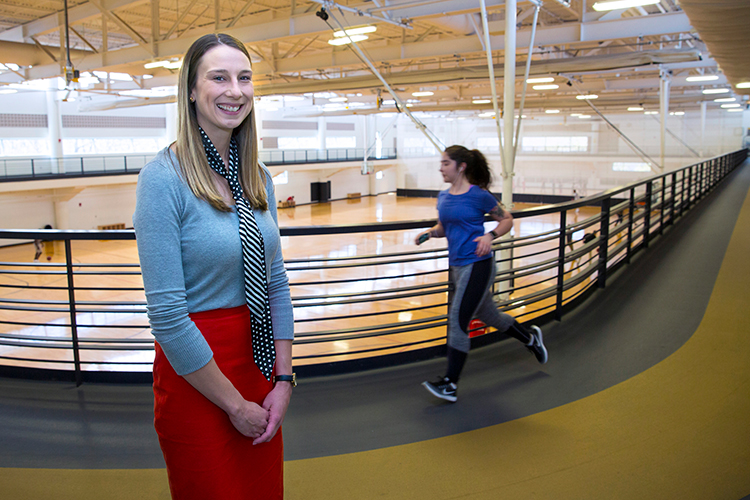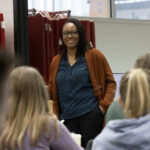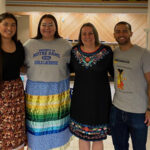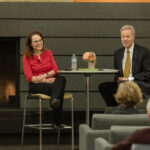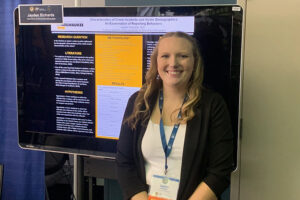It’s rare enough for a doctoral candidate to receive one job offer straight out of college. Stacy Gnacinski received five job offers before she’d even received her doctorate in sport psychology. She originally planned to become a physician assistant but a prerequisite course ultimately led her to pursue master’s and doctoral degrees in UWM’s College of Health Sciences.
Gnacinski, of Muskego, plans to use the research, teaching and community service skills she developed at UWM to succeed in her tenure-track position at Drake University in Des Moines, Iowa.
Why did you decide to study sport psychology?
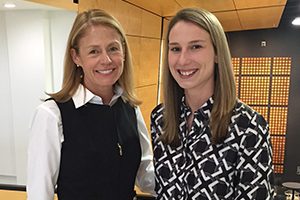
To be honest, I had never even heard of sport psychology prior to starting my education at UWM. In order to get into the MS kinesiology program, I needed to complete an undergraduate prerequisite course in sport psychology. During the first few weeks of Dr. Barbara Meyer’s undergraduate course, I was admittedly skeptical about the relevance of the course content. But then as the class went on, her lectures and examples from her professional practice experience really started to resonate with me on a personal level. I ended up loving the class so much that I decided to enroll in her graduate level course the next semester. You could say that I sort of stumbled into the field, but without a doubt I could tell right away that sport psychology was a fit for me. The work truly speaks to my passion for helping others achieve peak health and performance.
What have you enjoyed about studying at UWM?
The thing I enjoyed most about studying at UWM was the community-based work I’ve done in both my research and consulting practice. My thesis work was focused on identifying and understanding the integrated aspects (psychological, physiological) of firefighters’ health and performance. During this time, and for some years after, I was able to observe Dr. Kyle Ebersole and Dr. Meyer as they worked to establish the now longstanding community partnerships with local fire departments. Not only did my thesis research provide the opportunity to develop skills as a researcher, it also provided the intrinsic rewards inherent in giving back to the community.
I also trained as a consultant within UWM’s Laboratory for Sport Psychology & Performance Excellence, working with community athletes on the mental aspects of performance. As much as I loved the research at UWM, I think the consulting work I did under Dr. Meyer’s supervision was probably my favorite part of graduate school. There is just nothing like the feeling of watching an athlete come into their own confidence-wise and achieve their performance goals. Priceless.
What was it like to receive five tenure-track job offers?
I was fortunate to land on-campus interviews at six different institutions, so I was basically on the road every week from late January until early March. Preparing for each interview while balancing my UWM teaching load, dissertation research and consulting was incredibly challenging, but I truly enjoyed the interview process. I am very grateful to have had great mentors to lean on during this period, as the whole process was quite a whirlwind and definitely overwhelming at times. The outcomes (offers) always seemed totally uncontrollable to me, so I just tried to prepare and enjoy the experience as much as possible.
What are your plans for after graduation?
My long-term goal is honestly to continue and advance the work I’ve already been doing at UWM. In the past year or so, I think I have found a comfortable work balance of teaching, research and community service. Looking forward to the next chapter of my career at Drake University.
